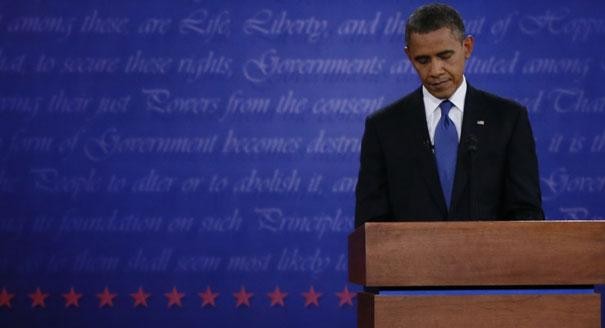What America needs is one more commentary on the debate. Eleven million Tweets is not enough.
And my earthshaking thought is . . . debating is hard. Few people are good at it, and Barack Obama is not one of them. He’s lucky Sarah Palin was on the GOP ticket in 2008. And Mitt Romney, celebrated by Republicans today who scorned him a month ago, is more actor than debater, and, gets the benefit of looking presidential.
It’s been widely reported that Obama was a real tiger on the campaign trail the day after the debate, which only highlighted his shortcomings the night before. Debating is not the same as making a speech, with or without a teleprompter, before a friendly audience or even a hostile one. It is not making a witty comment in a roundtable discussion on a television talk show. It certainly isn’t like writing commentaries or blogging to a computer screen.
And it isn’t reciting deficit numbers or Simpson-Bowles and Dodd-Frank Act to a nation coping with unemployment, pissed off at banks, Wall Street, and each other, and partisans hungry for blood and red meat. In journalism we call that inside baseball, or casting your remarks for insiders and advisers instead of viewers and readers at large. Both Obama and Romney played inside baseball.
My nominations for best Memphis debaters are school board members David Pickler and Martavius Jones. They squared off dozens of times before and after the consolidation vote, sometimes in the suburbs, sometimes in the inner city, and many times in public meetings when the television cameras were on, the stakes were high, and the comments of their fellow school board members competed for attention.
Pickler and Jones stayed on point, knew their stuff, stuck to their guns, did not personally insult each other, and kept coming back for more. Repeated practice made them better, which is something that hurt Obama, as Dana Milbank of the Washington Post noted.
Tomeka Hart is a good debater too, but she didn’t make her case well when she ran against Steve Cohen for Congress. Cohen is a bulldog of a debater, loves a scrap, has encyclopedic political knowledge, and swamped her.
On the Memphis City Council, Shea Flinn and Myron Lowery get my top marks. Lowery has gotten better with age and benefits from his television journalism background. Flinn is a natural with a background in acting. Both use their skills with the knowledge that seven votes carries the day on the council, and, while they’re capable of it, pandering to the crowd is done better by others on the council.
On the Shelby County Commission I like Walter Bailey’s elder statesman appearance and the way he picks his spots. Nobody says more in fewer words or uses the long pause better. Often a maverick, Bailey was on the commission, off the commission, and on again. He has heard and seen it all. Steve Mulroy, also an attorney, is an eager and articulate combatant but spreads himself thin. Terry Roland has aw-shucks appeal when not tossing insults. Good debaters are often not likable but they keep some decorum.
Courtroom lawyers can be good debaters but rarely venture into politics. They play to the jury, and their foes are hostile witnesses and opposing counsel, but that is different than a debate format where each person has two minutes at a time. Former federal prosecutor Tim DiScenza, who did the Tennessee Waltz cases, would have made a terrific debater — plain-spoken, go-for-the-jugular, versed in the facts, and about half mean.
One of the disappointments of the ongoing schools case is the likely lack of a full-blown debate by top lawyers of the underlying issues in school consolidation and resegregation.
That would be worth a ticket.
